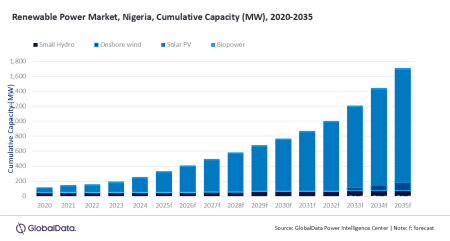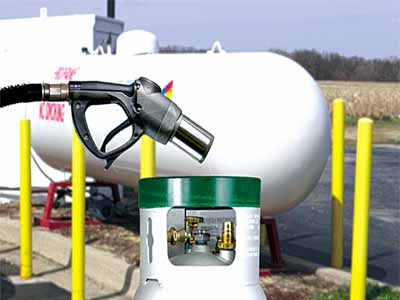 Olasunkanmi Akoni
Olasunkanmi Akoni
& Victor Ahiuma-Young
22 February 2012, Sweetcrude, LAGOS — Motorists plying Apapa-Oshodi expressway in Lagos literally went through hell, Tuesday, spending hours in the traffic as fuel tankers waiting to load fuel at the tank farms in the area blocked the entire expressway.
This was in spite the 72-hour ultimatum given to the tanker drivers on Sunday by the Lagos State Government to remove the vehicles from the highway or be forcefully relocated.
The traffic which stretched several kilometres was very chaotic at Mile 2 and Julius Berger yard as there were no officials of Lagos State Transport Management Authority (LASTMA) to control the traffic and restore sanity.
The state Commissioner for Transportation, Mr Kayode Opeifa, gave the 72-hour ultimatum to the tanker drivers when he paid an on-the-spot assessment of the damage at the scene of last Saturday’s early morning morning tanker explosion at Mile 2 which claimed three lives and 36 vehicles
The gridlock on the Apapa-Oshodi road started Monday night, following Julius Berger Plc’ blockade of the service lane, which connects motorists heading for Orile, as well as parking of a large number of petrol tankers which completely took over the entire service lane towards Apapa Port.
Consequently, some motorists were on the road from that night till as late as 1:00am Tuesday. Those who could not navigate their way to Orile turned to drive ‘one-way’ to Mile 2 in efforts to access Orile, compounding the situation, in the procoess.
The situation on the bridge linking Kirikiri maximum Prison was not different. For hours, motorists were grounded on the bridge till late at night, as the gridlock caused by those who could not gain access to Orile turned against traffic.
A motorist narrated his experience: “The pains Julius Berger is inflicting on Nigerians on this road is too much. I was heading towards Orile last Monday night to connect Eko bridge to CMS but discovered that that access had been suddenly blocked by the company.
“Therefore, there was no way motorists could continue as everyone was now turning, driving one-way to see how one could get back on the expressway.
“This took me almost an hour to be able to do this; it was bedlam. I didn’t get home until around 1:00am yesterday”.
Vice-chairman of Lagos State Council of Nigeria Labour Congress (NLC) and President, Nigeria Ports Authority (NPA) branch of Maritime Workers Union of Nigeria (MWUN), Comrade Sanni Adeleke, described his experience on the Oshodi Apapa Expressway in the past two days as terrible and horrifying.
He said on Monday, while going to work he spent over one hour and coming back, he spent over one and half hours.
According to him, “yesterday (Tuesday) was even worse because it was so chaotic and unbearable. It was just terrible. The tankers completely took over both sides of the roads. I think the earlier something drastic is done, the better because the nation is losing unquantifiable man hour on the road. Do not forget it is the only road to the nation’s seaports. We are just losing much.”
In his own reaction, National President of the National Council of Managing Directors of Licensed Customs Agents (NCMDLCA), Lucky Amiwero said that the activities of tanker drivers and trucks parked along the expressway were killing the economy.
Amiwero explained that more than 75 per cent of the goods that are imported into the country come through the ports in Lagos and that two of the major ports in the country are based in Apapa. He noted that the blockage of the access roads leading to these two important ports makes it difficult to effectively service the economy.
NCMDLCA boss laments effects on economy
The NCMDLCA boss pointed out that the difficulty in accessing the ports makes it very hard for agents to precess their document for the clearance of the goods. He also argued that the delay in the clearance of goods from the ports makes the nation’s ports one of the most expensive in the world.
He further noted that it takes about two to five days for empty containers to be returned back to the port and yet the importers and their agents are made to pay demurrage and levies for a fault that is not theirs. He warned that the situation will get worse unless government muster the will to effectively tackle the problem head on.
Agonising over his experience, a motorist, Ayo Adesanmi said, “I have spent more than four hours now on this traffic. What we are made to go through is frustrating. Why should the tankers block the expressway like this?”
There was no sign, yesterday, that the tanker drivers will remove the tankers from the highway at the expiration of the ultimatum. Opeifa said the relocation became necessary in the interest of Lagos residents whose lives are being threatened daily on the road by the indiscriminate parking, adding that tanker parks such as Asiwaju Bola Ahmed Tinubu Tankers Park at Orile with capacity for over 1,000 tankers provided in the state were underutilised. “The tanker drivers have failed to patronise the park but prefer to create nuisance on the highway waiting for loading of fuel”, he said.
Opeifa explained that it was possible for the tankers to leave the road without any stress as most of the tank farms have the parking facility to accommodate at least 500 tankers in their loading bays.
“Between now and the expiration of the ultimatum, the state government expect the union members to remove their tankers on their own volition as the state government will be there on Thursday to monitor the removal exercise.”
He also appealed to the Nigerian National Petroleum Company (NNPC) to stop issuing loading ticket for tanker drivers when adequate preparation has not been made for them, in order to reduce indiscriminate parking on the highway by the drivers.
“We understand that sometime the NNPC issued out more tickets than available; we want to appeal to NNPC also. Don’t issue out tickets for drivers to come and load in Lagos when you know you have not made adequate preparation for the fuel in Lagos. Then, why do we even have to come to Lagos to load fuel. We have refineries in this county that are working. Why must we come to Lagos from Sokoto, Enugu, Anambra states to come and load fuel when they can make arrangement for them to pick the fuel in Port Harcourt? So there is a failure in our petroleum distributive system. So, they need to address that. The essence of the trailer park is for the tanker drivers to rest.”
The commissioner, particularly called on Capital Oil to remove all abandoned tankers on the service lane to their parking bay or face sanction, even as he appealed to the management of Nigeria Port Authority, NPA to remove all articulated vehicles carrying containers from the service lane at Tincan Port for taking up most of the space available to traffic due to the ongoing reconstruction and expansion project in the axis.
Addressing Newsmen after a meeting, Opeifa called on the ministers for Petroleum, Transportation and Works to urgently look into the way of addressing operation of tankers in the state, stressing the need to put refineries back to work.
Meanwhile the representatives of the state government had a meeting with members of the Petroleum Tanker Drivers. The meeting which lasted for several hours at Alausa, Ikeja was called on the instance of the state government to deliberate on the mutual implementation of the ultimatum and to assist the union in the removal of the tankers from the road without any force by the law agencies.
In attendance were Chairman, Lagos Special Task Force on Environmental and Sanitation Unit, Superintendent of Police, Bayo Sulaimon, Engr Bola Matomi, Director Transport Operation and Acting Permanent Secretary of the transport Ministry, Engr. A Saeed amongst others. Zonal Secretary, PTDA, Comrade Adebayo Atanda and his assistant Comrade Tayo Aboyeji, led other members.
On his part, Atanda said his members have resolved to comply with the ultimatum which ends this night. He urged the state government to afford them the opportunity to clean up the place themselves, pledging that they have decided to obey the relocation order.
He explained that the gridlock on the axis is caused by the deplorable state of the road, adding that if government could come to their immediate aid, it would go a long way in addressing indiscriminate parking and avoidable accidents on the road.



